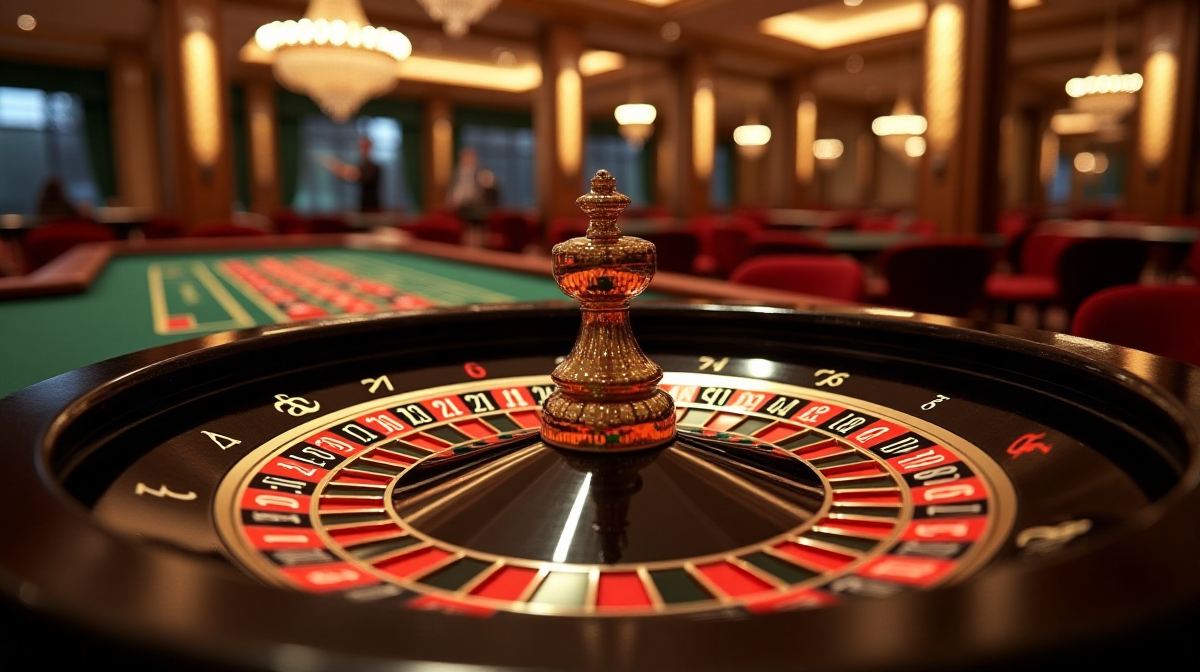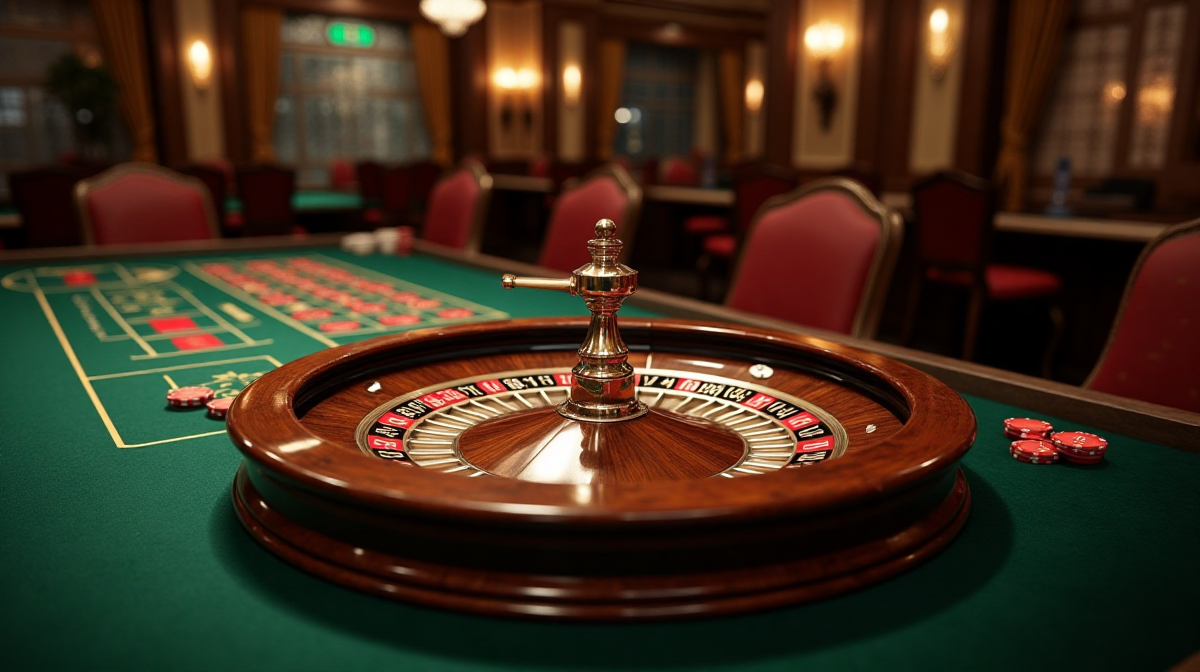What is Roulette? A Beginner's Guide
Introduction to Roulette
What is Roulette and Its History?
Roulette, meaning “little wheel” in French, is a captivating casino game steeped in history. Its origins can be traced back to 17th-century France, with Blaise Pascal’s attempts to create a perpetual motion machine inadvertently leading to the game’s inception. Over time, it evolved, eventually becoming a staple in casinos worldwide. Today, enjoying a game of roulette is easier than ever, with options ranging from traditional casinos to convenient online platforms like the fairplay app.
The Basic Goal of the Game
The core objective of roulette is remarkably simple: predict where the ball will land on the spinning roulette wheel. Players place bets on various sections of the wheel, hoping their chosen number or combination will be the winning one. Understanding what is roulette at its heart is about probability and chance.
Quick Facts - House Edge & Popularity
Roulette remains one of the most popular casino games globally, celebrated for its blend of simplicity and excitement. However, it’s crucial to understand the house edge. In American Roulette, the house edge is approximately 5.26%, while European Roulette offers a more favorable 2.70%. The popularity of roulette continues to soar, as evidenced by the growing interest in events like fairplay 2023 and its integration into various gaming platforms.
Understanding the Roulette Wheel & Table
The European vs. American Roulette Wheel – Key Differences
The most significant difference between European and American roulette lies in the wheel layout. The European wheel features 37 numbers (0-36), while the American wheel adds an additional “00” slot, bringing the total to 38 numbers. This extra slot increases the house edge in American roulette.
Inside Bets: Numbers & Combinations
Inside bets involve wagering on specific numbers or small groups of numbers on the roulette table.
Straight Up
A bet placed on a single number, offering the highest payout (35:1).
Split Bet
A bet placed on two adjacent numbers, with a payout of 17:1.
Street Bet
A bet placed on a row of three numbers, offering an 11:1 payout.
Corner/Square Bet
A bet placed on four numbers that form a square, paying out 8:1.
Six Line Bet
A bet placed on two adjacent rows of three numbers, with a payout of 5:1.
Outside Bets: Wider Coverage
Outside bets cover larger groups of numbers, offering lower payouts but higher probabilities of winning.
Red/Black
Betting on the color of the winning number (red or black), paying 1:1.
Odd/Even
Betting on whether the winning number is odd or even, also paying 1:1.
High/Low
Betting on whether the winning number falls within the range of 1-18 or 19-36, with a 1:1 payout.
Dozens
Betting on one of three groups of twelve numbers, paying 2:1.
Columns
Betting on one of the three vertical columns of numbers, offering a 2:1 payout.
Understanding the Roulette Table Layout
The roulette table layout mirrors the numbers on the wheel, making it easier for players to place their bets. The table is divided into inside and outside betting areas, corresponding to the types of bets described above.
How to Play Roulette: A Step-by-Step Guide
Placing Your Bets – A Practical Example
Let’s say you want to bet 10 chip directly on the number 17 on the roulette table.
The Spin of the Wheel and the Ball
The croupier spins the roulette wheel in one direction and then releases the ball into the spinning wheel in the opposite direction.
Determining the Winning Number and Payouts
Once the ball loses momentum and lands in a numbered slot, the winning number is declared. The croupier then distributes payouts to winning bets according to the established payout ratios. Some players seek out unique game experiences, even exploring options like buckshot roulette download apk for a different kind of thrill, but it’s important to remember these are often unrelated to traditional casino games.
Chip Values and Betting Limits
Casinos offer various chip denominations to accommodate different betting preferences. Each table also has minimum and maximum betting limits, which players must adhere to.
Roulette Betting Strategies
Martingale System – Pros and Cons
This strategy involves doubling your bet after each loss, aiming to recover previous losses with a single win. While seemingly effective, it requires a large bankroll and can quickly lead to substantial losses.
Reverse Martingale System
This system involves doubling your bet after each win, capitalizing on winning streaks. It’s less risky than the Martingale system but still doesn't guarantee profits.
D’Alembert System – A More Conservative Approach
This system involves increasing your bet by one unit after a loss and decreasing it by one unit after a win. It’s a more conservative strategy than the Martingale system.
Fibonacci System – Utilizing the Sequence
This strategy uses the Fibonacci sequence (1, 1, 2, 3, 5, 8, 13…) to determine bet sizes.
Important Note: No strategy guarantees wins
It’s essential to remember that roulette is a game of chance, and no betting strategy can guarantee consistent wins. Fairplay emphasizes responsible gaming, and strategies should be viewed as tools for managing bankroll, not as foolproof methods for winning.
Roulette Variations & Where to Play
French Roulette - La Partage & En Prison Rules
French roulette offers more favorable odds than its American counterpart, thanks to the “La Partage” and “En Prison” rules. These rules return a portion of your bet if the ball lands on zero.
Live Dealer Roulette – The Real Casino Experience
Live dealer roulette provides a realistic casino experience by streaming a live dealer to your screen.
Online Roulette vs. Land-Based Casinos
Online roulette offers convenience and accessibility, while land-based casinos provide a more social and immersive atmosphere.
Choosing a Reputable Online Casino
When playing online, it’s crucial to choose a reputable casino with proper licensing and security measures.

Roulette Terminology You Need to Know
Croupier
The person who operates the roulette wheel and table.
Dealer
Often used interchangeably with croupier.
House Edge
The casino’s advantage in a game.
Payout Ratio
The amount paid out for a winning bet.
Bankroll
The amount of money a player has allocated for gambling.

Responsible Gambling & Resources
Setting a Budget
Before you start playing, set a budget and stick to it.
Knowing When to Stop
Recognize when you're losing and avoid chasing your losses.
Resources for Gambling Addiction Support
If you or someone you know has a gambling problem, seek help. Numerous resources are available, including the National Council on Problem Gambling and Gamblers Anonymous. Platforms like fairplay often provide links to these resources, promoting responsible gaming habits.

